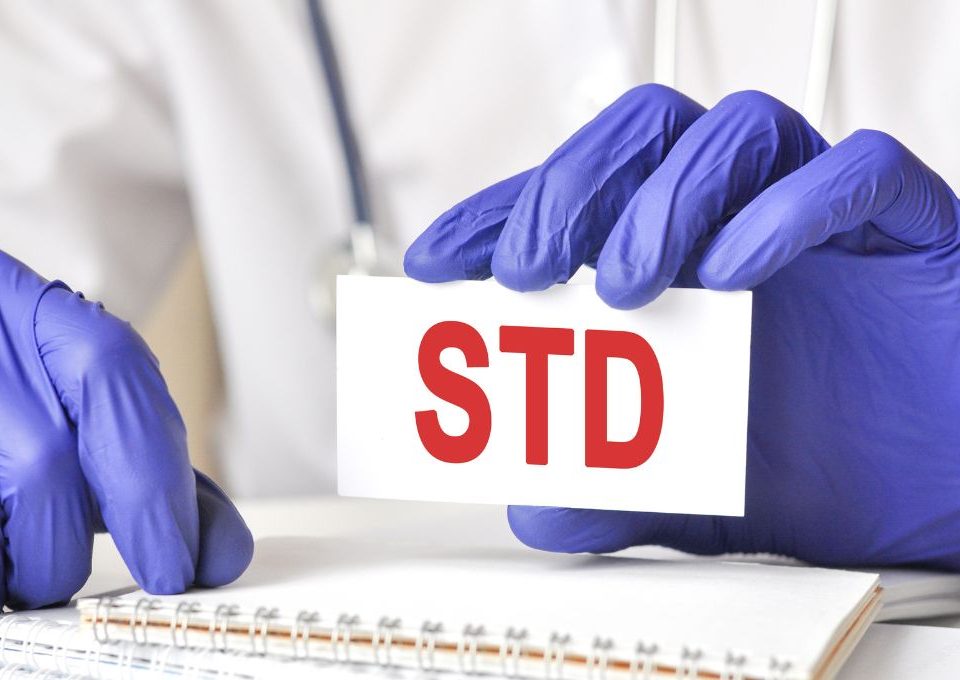
Effective Strategies for Managing Diabetes
June 25, 2024
How Is a Full STD Test Done
December 16, 2024Hormonal Imbalance in Women: Signs, Causes, and Effective Treatments
Okay, hormones are hugely important for body equilibrium and utilization of every single organ and tissue in the body. In females alone, many hormones such as estrogen, progesterone, testosterone, thyroid hormones, among others, control fertility, moods, metabolism, among various other functions. If these hormones get off balance, a number of physical, emotional and mental disorders can occur. This blog focuses on providing an overview of hormonal imbalance and its signs, discussing its possible causes, and it gives information concerning hormonal testing and the ways of its treatment.

Understanding Hormonal Imbalance
Hormonal imbalance tends to arise from the presence of an excessive amount of hormones, or lack of one or more hormones in the body. Hormones are substances which facilitate many activities including growth, metabolism, reproduction and mood. Low and high changes of each factor can greatly affect the woman’s health even when it is small in amount.
Symptoms of Hormonal Imbalance in Women
It differs depending on the hormonal imbalance, meaning that there are different symptoms, depending on which hormone is imbalanced. Here are some common indicators:
- Irregular Menstrual Cycles
Seriously irregular female cycles suggest hormonal imbalance, that is, the lack of the menstrual cycle, heavy bleeding, or postcoital spotting. Which is sometimes associated with estrogen and progesterone hormones.
- Weight Changes
It is important to note that problems, such as insulin resistance or problems with the thyroid, can be revealed by the fact of unexpected weight gain or by difficulties with weight loss.
- Fatigue
If you have fatigue, despite getting plenty of sleep and having no other pathophysiologic cause, you might have cortisol or thyroid hormone dysfunction.
- Mood Swings and Depression
Hormonal swings of estrogen affect serotonin levels and that is why a woman becomes anxious or irritable, or maybe even depressed.
- Hair Thinning or Hair Loss
Any hormonal imbalance or even excessive secretion of male hormones or thyroid hormones can lead to hair changes.
- Skin Problems
Hormonal changes including puberty, pregnancy, menopause or use of certain contraceptive is commonly associated with acne, dry skin or oily skin.
- Low Libido
Reduced levels of testosterone or estrogen tends to lead to low sexual desire or sexual dysfunction.
- Hot Flashes and Night Sweats
These are typical for many women during the period of menopause; it is associated with hormone, particularly estrogen levels.
Causes of Hormonal Imbalance in Women
Hormonal changes can be due to normal developmental changes such as reaching puberty, being pregnant, or reaching menopause. However, various lifestyle and medical factors also play a role:
- Stress
Stress over time may cause cortisol levels to rise and other hormones like estrogen and progesterone to be shut out.
- Health Dangers Bring Poor diet and Nutritional Deficiencies
Hyperglycemia for whatever reason can destabilize insulin and other hormones, not to mention that consumption of foods which contains high sugar and unhealthy fats are no good. It is also caused by low levels of vitamins such as B6 or magnesium.
- Thyroid Disorders
Hyperthyroidism (overactive thyroid) or hypothyroidism (underactive thyroid) influences metabolism and all hormones of the body.
- Polycystic Ovary Syndrome (PCOS and its relationship to different aspects of life)
Mainly contributing to this disparity, PCOS increases androgen levels and creates less frequent and irregular periods.
- Use of Birth Control
Intercourse using pills may disrupt the normal hormonal cycle and may require reinforcement once stopped.
- Environmental Toxins
Deceptive chemicals such as BPA in plastics may cause interference with the body’s endocrine system.
- Illnesses and Drugs
, there are disease states like diabetic histories or autoimmune disease that affect endogenous hormones or presence of drugs such as steroids can alter endogenous hormones.
- Aging
During menopause, hormone levels shrink which is a natural progression in a woman’s life, estrogen and progesterone.
The Role of Hormone Testing
To determine the hormonal disturbances adequately, hormone tests are an inevitable diagnostic tool. It used to diagnose whether a person has too little or too much of certain hormones. Common tests include:
- Blood Tests
Tests for such hormones as estrogen, progesterone, testosterone, and thyroid hormones.
- Saliva Tests
Used especially in measuring cortisol level every now and then within the day.
- Urine Tests
Offers a general knowledge about hormone metabolites which may be of particular importance when dealing with adrenal and gonadal and adrenal hormones.
Effective Treatments for Hormonal Imbalance
The management of the condition depends on the cause and extent of the imbalance. A combination of lifestyle changes, medical interventions, and natural therapies often proves effective:
- Lifestyle Adjustments
- Balanced Diet: Avoid empty foods and instead emphasis on nutrient dense foods such as fiber, healthy fats and lean proteins. Certain types of foods, such as flaxseeds, soybean and green vegetables are known to enhance hormonal balance.
- Regular Exercise: These hormones, used for regulation of glucose and stress respectively, are normalized by moderate physical activity. Yoga and meditation have shown the ability to alleviate the stress effects on human body and rescue from stress-induced imbalance.
- Adequate Sleep: Your body relies on a consistent sleep schedule to restore and even out levels of your body’s primary hormones.
- Medical Treatments
- Hormone Replacement Therapy popularly referred to as postmenopausal hormone therapy.
- Used for relief of menopausal symptoms, HRT replaces oestrogen and progesterone hormones.
- Thyroid Medications
- Treat hypo or hyperthyroidism with medications such as levothyroxine.
- Insulin Sensitizers
- Regular medications like metformin affect the PCOS as well as insulin resistance.
- Natural Remedies
- Herbal Supplements: Some adaptogens such as ashwagandha and maca root may help with the stress and the adrenal systems.
- Essential Oils: Some of the oils useful in PMS and stress include clary sage, or lavender.
- Acupuncture and Ayurveda: These traditional therapies are in a way that seeks to give back balance in each aspect of life.
- Regular Monitoring and Follow-Ups
- This way, patients’ states have to be monitored from time to time to determine the positive changes and consider necessary modifications of the hormone therapy.
Preventing Hormonal Imbalance
An ounce of prevention is worth a ton of cure. Follow these tips to maintain hormonal health:
- Limit Sugar and Processed Foods: Diabetes: Increased sugar consumption causes the body to be resistant to insulin.
- Stay Active: A healthy weight also minimizes likelihood of hormonal disruptances such as Polycystic Ovary Syndrome (PCOS).
- Reduce Toxin Exposure: Do not use plastic containers and, whenever it is possible, try to buy organic products.
- Stress Management: Incorporate some time for mindfulness practice from two to three times in a day.



